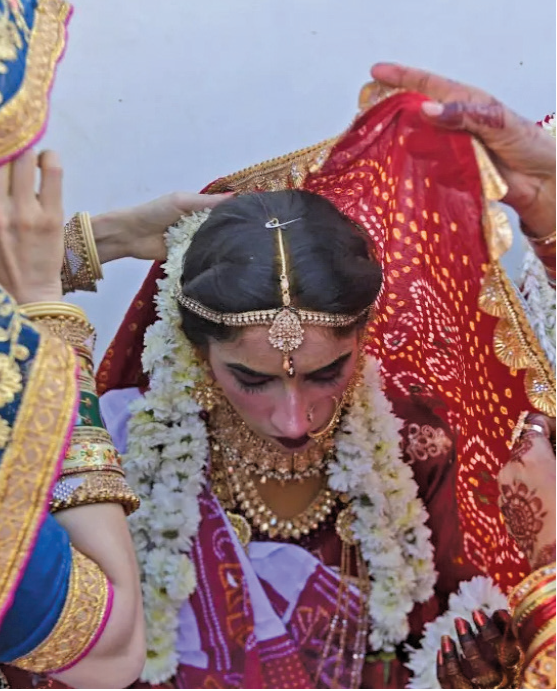The other day, I received a call from a family friend asking if I could help a girl in dire need of money for her dowry. This was her second marriage and the expectations of the new groom’s family are even higher than those of the previous one. I was also informed that the girl and her family are also trying to take out a loan to meet the exorbitant dowry demand as the pressure was building up. If you are of South Asian origin, then this story might feel like a headline from yesteryear’s newspaper. The women in our part of the world grow up witnessing and later living these experiences regardless of race, religion and social status. If you belong to an ultra-wealthy family, your happy day will be an ostentatious display of economic prosperity (even if these functions remind you of Lucky Irani Circus!). However, if you come from a class lower than the upper, as the fine line between middle and lower classes is diminishing at breakneck speed, your family will try to stage a similar display on a budget, by borrowing money for dowry and all the pre-, during and post-marriage events
Seated in a snug coffee shop enjoying the rain on a wintry summer day of July in England, I could feel the girl and her family’s arduous ordeal during the hottest days of July in Pakistan. Every individual goes through a unique set of experiences before forming an opinion on a subject. Marriage is no exception and people often overgeneralise it based on their own observations. I wanted to talk to the girl and tell her and her family to ‘re-adjust their priorities’ because they are ‘putting the cart before the horse’. I wanted to tell her to prioritise her own financial stability and wellbeing. In South Asian countries, marriage, whether arranged or love, is more about the festivities and pleasing the bridegroom and his family and less about the bride and her often-unmet expectations. This does not necessarily mean that marriage is either good or bad. In simpler terms, marriage is, like any relationship – be it professional or friendly – a social contract but in favour of patriarchy.
Matrimonial alliance is a social contract that outlines the rights and responsibilities of each party, much like a job contract specifies tasks and compensation. Understanding and clearly defining these expectations are crucial for the success of any relationship.
In the West, the marriage rate has plummeted in the past five decades. The marriage experts state that need for individuality, lack of commitment and trust as well as financial insecurity are the key factors. Instead of saying, ‘I do’, some couples decide, ‘I can’t’ and choose to cohabit and start living together. In both the USA and the UK, the legal rights of cohabiting or unmarried couples differ significantly from those of married couples. Generally, unmarried couples may face challenges in areas such as property division, inheritance, and health care decisions, as they are often not automatically entitled to the same legal protections and benefits as married couples.
In the UK, cohabiting couples do not have the same legal status as married couples or civil partners. Although some protections exist, such as those related to child support, cohabiting partners do not have automatic rights to each other’s property or inheritance sans a will, and they need to rely on cohabitation agreements to outline their rights and obligations.
In South Asian countries, marriages are more like ‘legal cohabitation’ for most women. Although the husband and wife live together under the same roof, they do not have equal rights. The religious significance of marriage is profound and multifaceted, encompassing spiritual, moral, and social dimensions across various religious traditions. Religion tells us that the fabric of society heavily relies on the institution of family, with man and wife having equal rights. However, the androcentric cultural norms, traditional myths and societal pressures reinforce the view that in some cases, marriage is not the solution to all problems but it is in fact a problem to all solutions.
Like all things, marriage is inherently neither good nor bad. It is, in reality, the people, the society, and the mind-set that truly matter. If you meet the right person at the opportune time then you would understand what famous American writer Mark Twain said to his wife Olivia in a letter a few months before their marriage:
‘A marriage makes of two fractional lives a whole;
It gives two purposeless lives a work,
And doubles the strength of each to perform it.’
However, if, Heaven forbid, someone marries a person with a completely different past, experiences and expectations, then that union is most likely become a never-ending nightmare that will torment both parties until death do them part.
The contributor is a filmmaker and independent writer based in UK.



